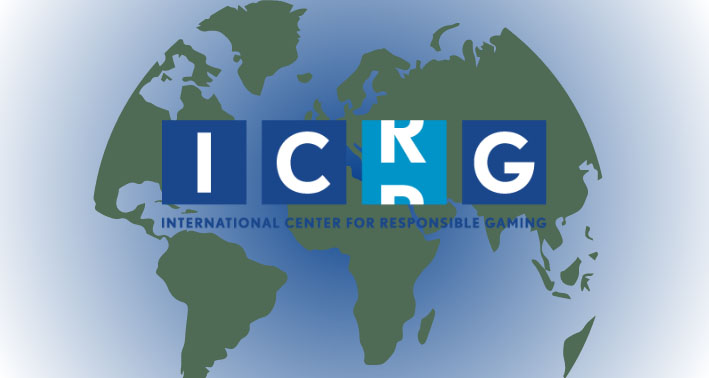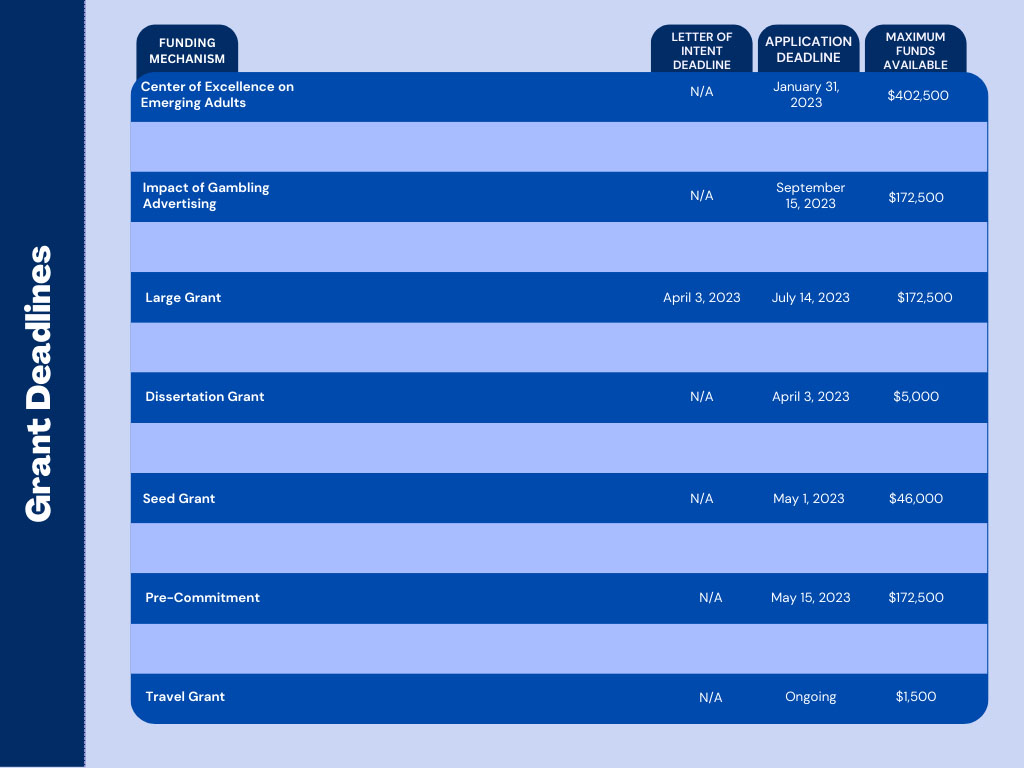
2024 Grants Program
REQUEST FOR APPLICATIONS FOR RESEARCH ON GAMBLING AMONG UNDERSERVED COMMUNITIES
Application Deadline: January 22, 2024
The ICRG invites investigators to apply for a two-year grant in support of research on the impact of gambling on under-served groups in the U.S. or Canada. Applicants may request up to $75,000 per year for a two-year Large Grant with no more than 15% of direct costs for Facilities and Administration. Total requested may not exceed $172,500.
Deadline for letters of interest: April 1, 2024
Up to $172,000 available for two-year grant.
SEED GRANT
Application Deadline: May 1, 2024
Up to $46,000 available for one-year grant.
TRAVEL GRANT
Application Deadline: Ongoing in 2024
Travel Grants are intended to support the participation of post-doctoral investigators at scientific meetings (not specifically focused on gambling) at which they are scheduled to present a paper or a poster on gambling disorder research.
ICRG Policy on Academic Integrity and Research Misconduct
“Research misconduct is defined as fabrication, falsification and plagiarism, and does not include honest error or differences of opinion.” (ORI 2005)
ICRG is committed to ensuring the academic integrity of all research funded with its grants. ICRG conducts multiple reviews of grant applications and related proposals every year. Peer reviewers who believe they have identified research misconduct in the form of fabrication, falsification or plagiarism are required to alert ICRG’s Senior Research Director immediately upon such concern. The allegation must not be discussed during peer review, and the reviewer making the allegation will be reminded of the ICRG policy on confidentiality. An application flagged for possible misconduct will still be put through the peer review process.
Within 30 days of being alerted to possible misconduct, the Senior Research Director will convene a meeting of the Scientific Advisory Board (SAB) to discuss the allegation. The Senior Research Director will be required to assess any conflicts of interest within the SAB prior to the meeting.
Within 30 days of such meeting, the SAB will decide by at least a two-thirds/majority vote of all of its then members if the alleged misconduct should be reported to the grant applicant’s institutional office of research integrity. Alleged misconduct must be deemed egregious in the eyes of the SAB to be so reported. The Senior Research Director will then be solely responsible for any communications with the applicant’s institution on behalf of ICRG.
NIH Office of Scientific Integrity Definitions for purposes of this Policy: Fabrication: Making up data or results and recording or reporting them. Falsification: Manipulating research materials, equipment, or processes, or changing or omitting data or results such that the research is not accurately represented Plagiarism: The appropriation of another’s ideas, processes, results, or words without giving appropriate credit
References:
Handling Misconduct | ORI – The Office of Research Integrity. (2005). The Office of Research Integrity. https://ori.hhs.gov/handling-misconduct
Eisner, R., & Vasgird, D. (2003). Responsible Conduct of Research : Research Misconduct. https://Ccnmtl.Columbia.Edu/Projects/Rcr/Rcr_misconduct/WinResources.Html.
Click here to download the RFA announcement and the application form, both of which are included in separate “Resources” boxes. Email nmancini@icrg.org if you have any questions.


